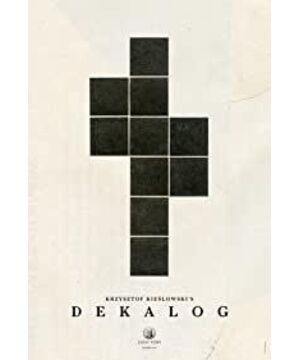Synopsis:
The film tells the sad story of two brothers Arthur and Jesse. The brothers, who seldom saw each other, reunited after their father's death and found a stamp album from his father's death while sorting through his belongings. The two brothers, who originally regarded this as an ordinary relic, unexpectedly discovered that this stamp album was a priceless treasure when they wanted to sell the stamps. The discovery completely changed their lives, and they devoted all their energy to guarding the stamp album. In order to make the precious stamps even more perfect, the brother even preferred to donate a kidney in exchange for the missing one in the set. When their dream is about to come true, they are shocked to learn that the stamp album has been stolen. The lost and angry two begin to take responsibility for each other and even doubt each other. When the truth came out, the two leaned against each other holding the newly bought stamps, and they laughed and laughed.
Analysis of the ideological connotation of the film:
One: The horror of greed
Since we want to persuade people to restrain greed, we must first tell people the harm of greed. The Ten Commandments go to great lengths to show how greed alienates human nature. Brother Arthur, who has a job and a family, will give his son a stamp with tenderness, thinking of his late father. But when he learned that the stamps were worth a lot of money, all his gentleness and elegance disappeared. He was furious and crazy, like a vicious dog rushing towards the food, unscrupulously trying to take back his own treasure. The stamp album hooked his soul, and he rushed to it with all his heart, not only to protect it with all his strength, but also to contribute to it. At this time, he was like a gambler: if he lost, he wanted to turn the tables, and if he won, he wanted more. He focused on money, bet without any scruples, and headed for an irreversible abyss step by step. This state of anesthesia even brought him a strange joy, because greed shielded all troubles and responsibilities, even himself. This madness culminated in Arthur selling his kidneys. If it can be said that his pursuit of stamps before can be said to be an interest or a complex, at this time he has become a slave of stamps. To be bound by matter, to destroy oneself for the sake of matter—what a tragedy! We think we are the owners of our property, but we cut our flesh for the sake of our property!
Second: The Falsehood of Greed
In addition to showing the alienation of human nature, the film also focuses on depicting the ruthless mockery of the two protagonists by fate. Brother Arthur gritted his teeth and donated his kidney in exchange for the only missing stamps. As a result, all the original stamps were stolen, and Arthur's sacrifice lost all meaning. After the theft, the police came to the home to investigate and found that the main loophole in the room was the broken wire of the alarm bell - which was precisely cut by Arthur accidentally, and Arthur could only knock out his teeth and swallow blood. At the end, the two brothers smashed the real murderer on the street. They were shocked to find that their fate had been planned by the people they met. This was a trap from the beginning, and their struggle was for the end. Others make wedding clothes! There are too many unpredictable things in life, not to mention money, even the net worth and life can't be guaranteed. The disillusionment shown by the director through the film tells us that wealth cannot be relied upon, and that people's excessive obsession with money is really pathetic and ridiculous.
The third: The return
stamp calling for humanity is an important clue in the film. The ups and downs of the status of stamps in the protagonist's mind reflect the changes in the protagonist's mentality, from the relics of his father, to the inheritance of hundreds of millions, and finally to the tacit agreement between the two brothers. It is restored to its original form - a souvenir of sustenance, symbolizing the return of the protagonist from the confusion of greed to the true nature of human nature. The main manifestation of human nature in the film is brotherhood. The two haven't seen each other for a long time, and they have been together for a long time under the traction of stamps, and their relationship has deepened. However, greed makes the two brothers have no mood to savor their brotherhood after the stamps are lost, and even suspect and accuse each other. At the end, they each bought newly issued stamps, which is a kind of compensatory psychology to make up for the loss of lost property and brothers. When Arthur looked at the same stamp and said, "This is a set," the two cried together. These are tears of pain and tears of joy, at least they have found their brothers.
Audiovisual Language Analysis:
Lens Language
A montage of brother Arthur's surgery is wonderful. Several short and sharp clips, full of rhythm and engaging. White coat, medical forceps, bloody gauze, the surroundings were so quiet that only the beeping sound of the pacemaker could be heard, and a cold and terrifying feeling struck his heart. Arthur's act of selling his kidneys seemed so cruel and sad. The picture of the strange dog is interspersed in the middle, which corresponds to the turning point of the later plot. Next, the red spaceship stamp that the two of them were looking for faintly appeared in the picture, exaggerated close-ups and trembling shots, which made people almost feel the rapid breathing of the holder, as well as the panic and anxiety after the desire was satisfied. . The stamp is stretched and deformed on camera until it is beyond recognition, which is clearly a metaphor for the two brothers being twisted by greed. This set of montages played a role in deepening the theme.
Sound processing
The sound of the film is extremely simplified, except for the dialogue of the characters, it is basically a simultaneous recording, which fully promotes the style of realism. This is closely related to the strong realistic meaning of the subject matter. A handful of soundtracks punctuate the plot just right. For example, a drum beat always appears at the right time when the plot turns. For example, when the two brothers heard that the red spaceship stamps were traceable, the drum beat was their excitement and ecstasy in their hearts; when they learned that they wanted to donate kidneys in exchange for stamps, the drum beat was like It hits their hearts, representing temptation and struggle. When the younger brother Jesse got the stamps, the eerie sound effects coupled with the distortion of the camera, as if the abyss of greed beckoned to them, perfectly set off the atmosphere.
The overall style of "The Ten Commandments" is very calm and restrained, and the overly concise handling is sometimes convoluted, and the realistic approach makes the film less dramatic and slightly dull. However, this film has a certain height both in terms of ideas and skills. This also suggests that in the process of appreciating the film, we should not only focus on viewing, but should pay attention to those parts with real materials.
View more about Dekalog reviews











